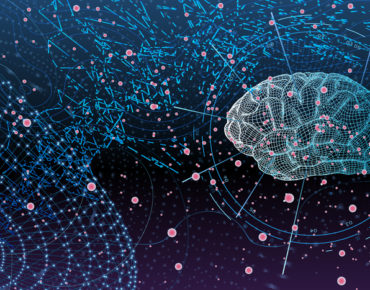AI Modeling Reinvented: It’s Time to Shift to Better Data, Rather Than Just Building Better Models

For several years, AI model building has been centered on creating better models to further push the envelope of increased performance and broader AI capabilities in enterprise computing and research.
But new approaches may be needed, including a dramatic, 180-degree shift to the idea that cleaning and refining the huge amounts of critical data used for those complex models might truly be the best way to drive the AI advancements of tomorrow.
That was the message of Greg Diamos, the engineering tech lead at Landing AI and a founding partner and data chair of the MLPerf benchmarks, during a thought-provoking presentation at the virtual AI Hardware Summit on Sept. 14.
Diamos’ talk, “Moving from Model-Centric to Data-Centric AI – A Systems View,” focused on how this change of approach can bring positive new implications about how AI systems are built.
“In the past, we have focused on building bigger and faster AI training systems that can train on more data,” Diamos told EnterpriseAI in an interview following the presentation. “In addition, we also need bigger and faster systems that help us clean and improve our data.”
That’s where transitioning from model-centric approaches to data-centric systems can be a boost that can speed up and improve accuracy for AI modeling, he said.
“Data is the bottleneck,” said Diamos. “Removing that bottleneck or mitigating it through advanced data cleaning, data augmentation, data search and data labeling will improve the accuracy and efficiency of our AI solutions.”
But that requires serious changes to today’s approach, especially because it would require AI practitioners to shift their focus from model and algorithm development to a new idea of producing and using better data as the number one task.
“Focusing on data has led to larger improvements in accuracy for multiple case studies that we have seen at Landing AI,” which specializes in data-centric MLOps for computer vision, said Diamos. “Models and algorithms have advanced enough to be deployed reliably in production, and most of the work [nowadays] is spent on creating and improving data.”
This is where machine learning and AI systems communities should now be carefully focusing their attention, he said, including on the systems, tools and processes they need to create and iteratively improve their critical data.
“This does not mean that there are not also challenges with models and algorithms, but data is often a bigger problem,” he added.
So how can cleaner and better data be an answer that could be more important than the present focus on the models themselves?
“It is because models trained on cleaner data require less data to achieve the same accuracy,” said Diamos. “Clean data levels the playing field by allowing smaller companies with fewer resources to build accurate machine learning systems, without requiring high performance training systems and internet-scale data crawling. It also makes high performance training systems more efficient.”
 Diamos said his insights about changing the focus of AI modeling techniques are aimed at system builders who are working on AI frameworks, software stacks, runtimes, compilers and accelerators. “The data-centric AI movement is gaining momentum now, and I want to make sure that this community understands why it is important and how to participate,” he said.
Diamos said his insights about changing the focus of AI modeling techniques are aimed at system builders who are working on AI frameworks, software stacks, runtimes, compilers and accelerators. “The data-centric AI movement is gaining momentum now, and I want to make sure that this community understands why it is important and how to participate,” he said.
And as these new approaches are considered and disseminated, the many AI and ML communities will likely find all of them are intertwined, he said.
“As AI practitioners shift their focus from model and algorithm development to the quality of the data they use to train the models, it will create new demands from systems builders to support data creation and iteration,” said Diamos. “And the community needs to start building this support now.”
Before joining Landing AI, Diamos worked at other AI companies including Nvidia and at Baidu, where he worked on AI research.
His work with MLPerf helped create a set of important machine learning benchmarks for training and inferencing that are used to compare diverse systems. The MLPerf benchmarks are now part of the MLCommons open engineering consortium, which is an industry-academic partnership that aims to accelerate machine learning innovation and broaden access to this critical technology for the public good. The non-profit organization was initially formed as MLPerf.
Diamos, who holds a doctorate in electrical and electronics engineering from the Georgia Institute of Technology, joined Landing AI in June 2019.
Landing AI was founded by machine learning pioneer, Andrew Ng.












